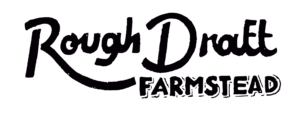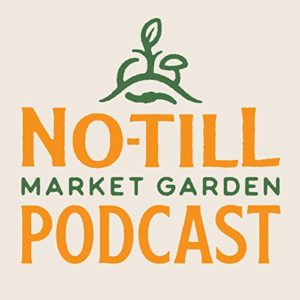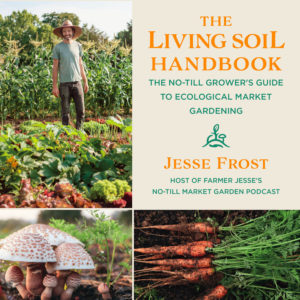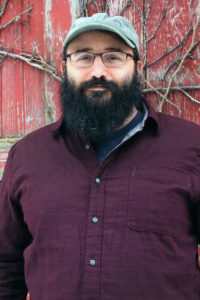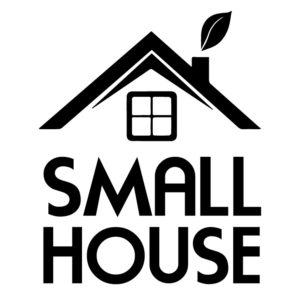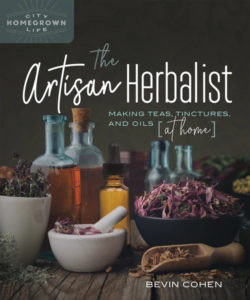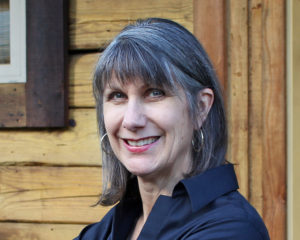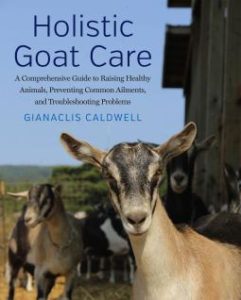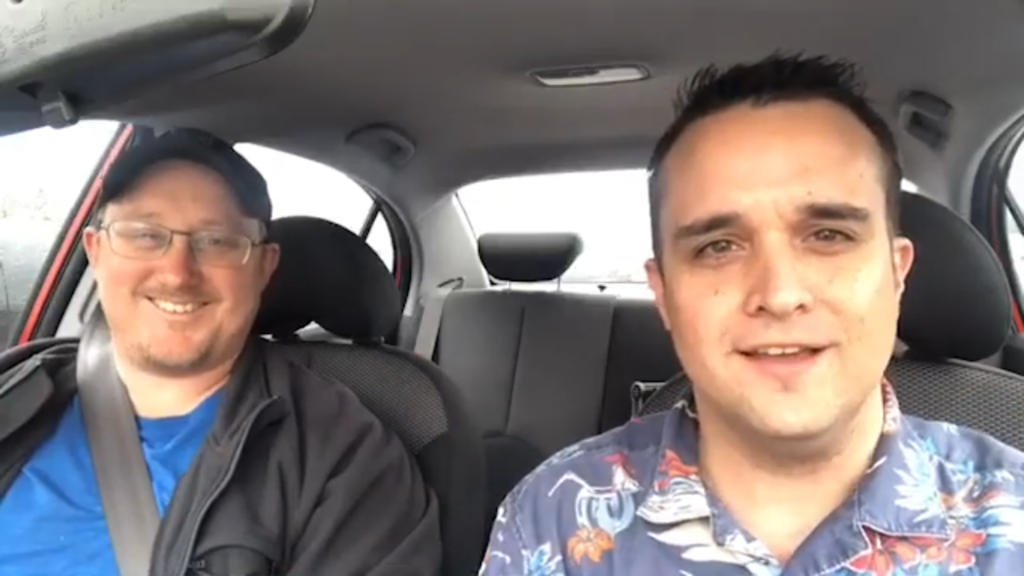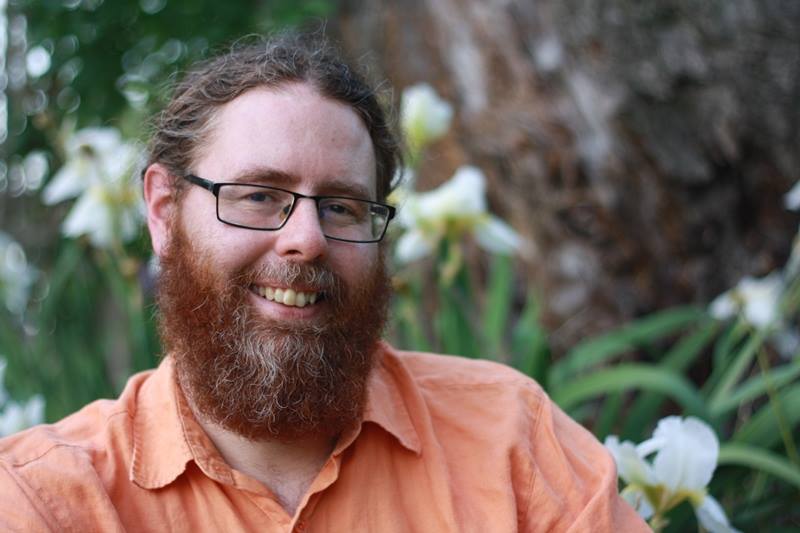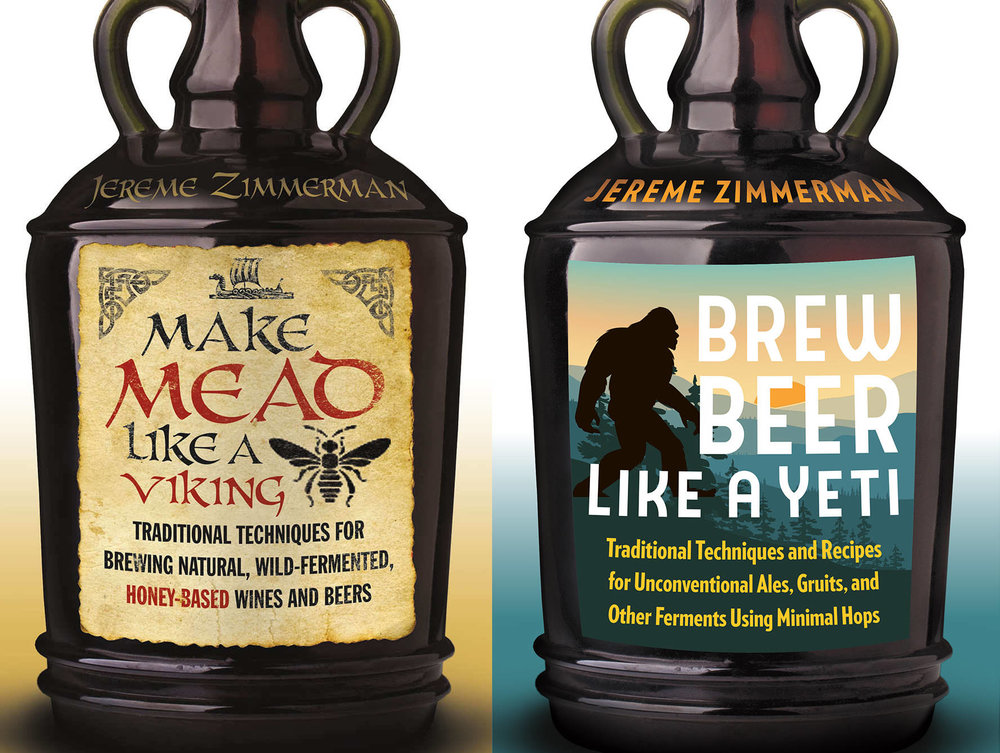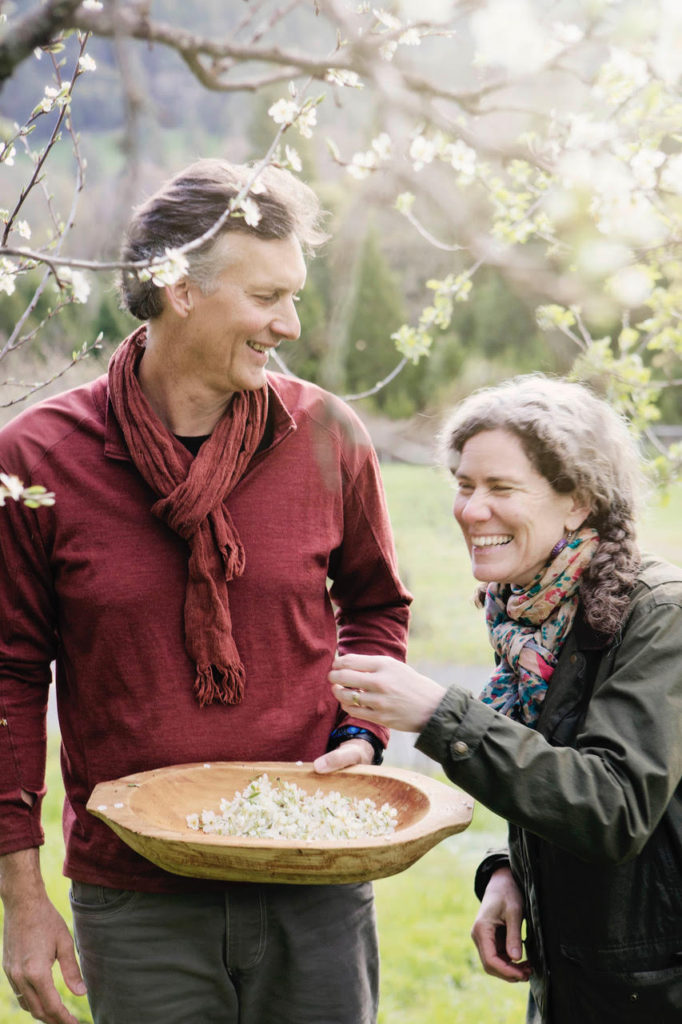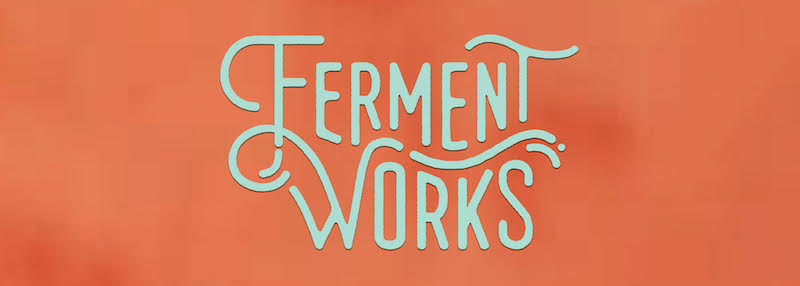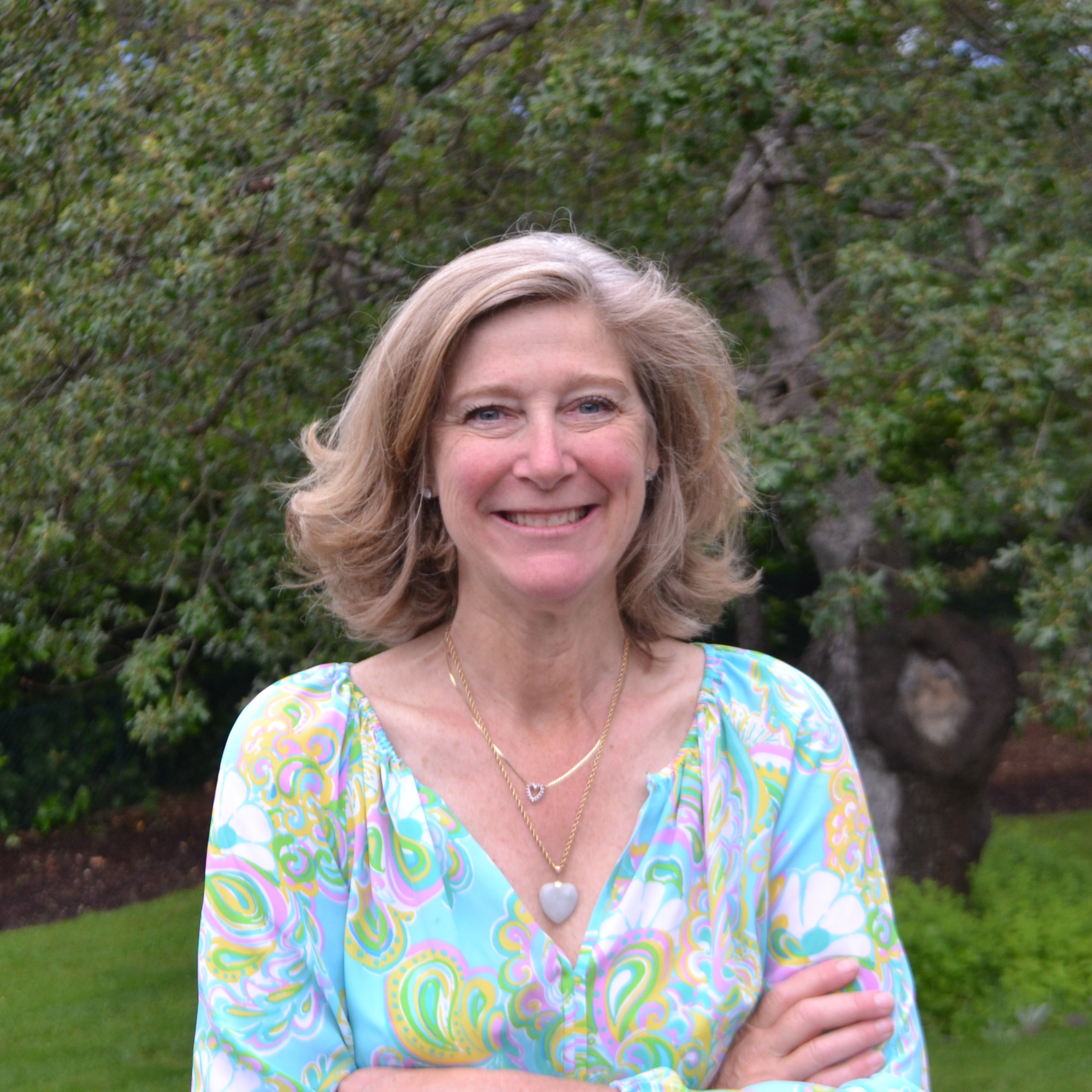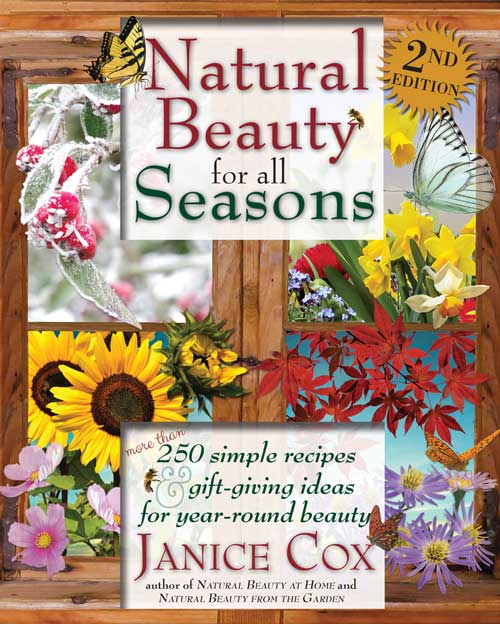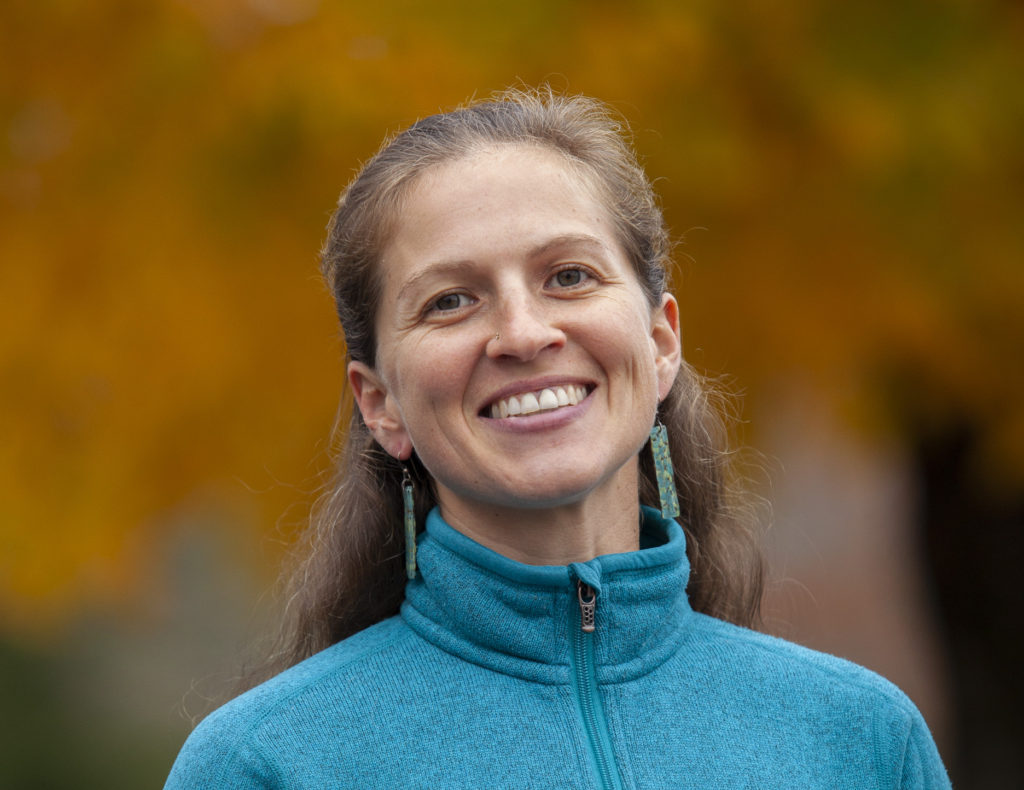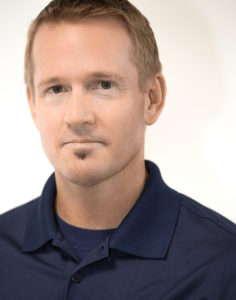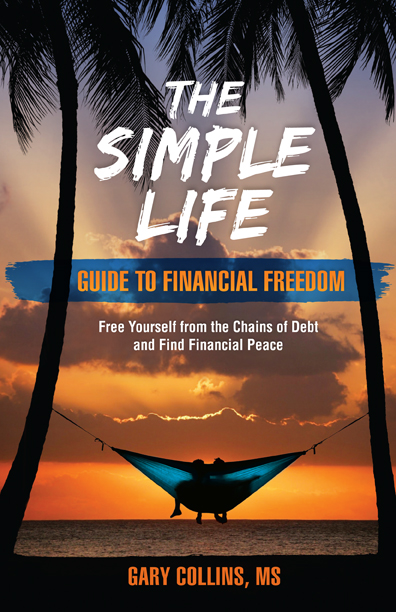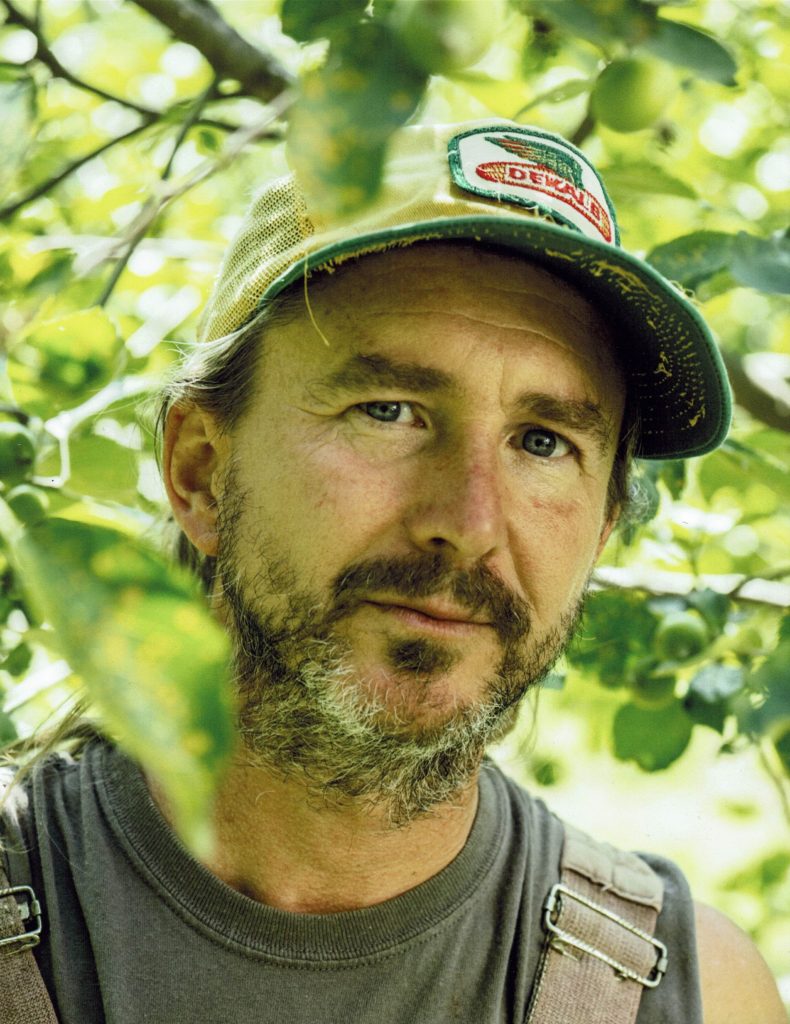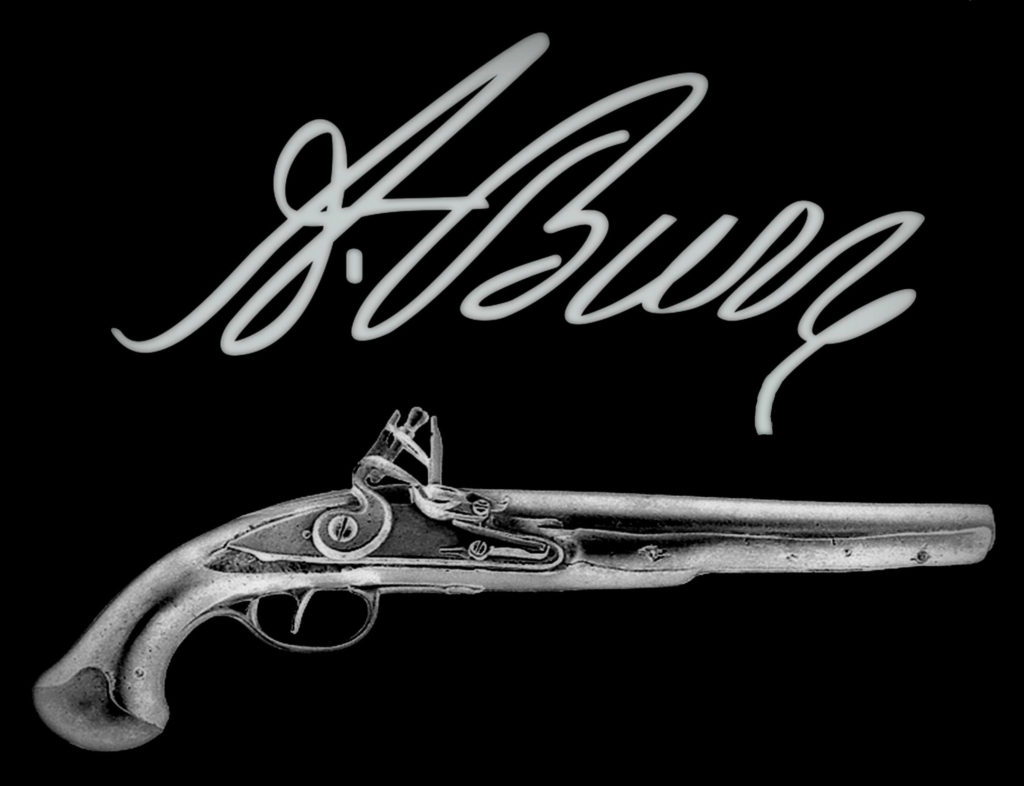Podcast: Play in new window | Download
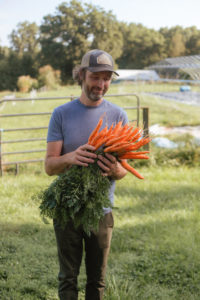
Take both feet and jump right in!
It’s clear Jesse Frost is well informed on gardening and things he’s passionate about. But for he and his wife Hannah Crabtree to take that passion and turn it into not only a way of life but a way of making a living is truly impressive.
Join us for some fabulous insight, from getting a start in farming, to what it takes to get your book published.
Oh, and did we mention Jesse’s terrific No-Till Market Garden Podcast and the quality information you can get from listening…all for free!
Check out the links below for more info on Jesse and Hannah’s Rough Draft Farmstead, to No-Till Growers Podcasts and Jesse’s new book published with Chelsea Green Publishing called, The Living Soil Handbook.
The Living Soil Handbook – https://www.notillgrowers.com/livingsoilhandbook/d9z5gkf1bbnhu0w5xxb3trngiqhwgo
No-Till Growers Podcasts – https://www.notillgrowers.com/home
Podcast on Youtube Also – https://www.youtube.com/channel/UCLhu5JoRWPgEGDoUFfQHTPQ
Rough Draft Farmstead – https://roughdraftfarmstead.com/
Show Notes
- From Wine to Farming: My Start in No-Till Farming with Bugtussle Farm to Starting Rough Draft Farmstead
- Type of Vegetables We Grow at Rough Draft Farmstead
- How We Found Our First Customers
- Why Being Certified Organic Was A Big Move For Us
- Keeping No-Till Growers Podcast Accessible For All
- New Book: Living Soil Handbook with Chelsea Green Publishing
- Positive Response Since The Books Been Launched
- How We Started The No-Till Market Garden Podcast
- How To Find No-Till Growers Podcast
- Big Following on YouTube
- Why We Choose the keyword “No-Till”
- What I Like Best About Farming & Podcasting
- Being Open to New Ideas In Farming & Media
- Happy Life: Importance of Family and Relationships
- My Advice to Farmers
Transcription
Brian: How did you start your podcast?
Jesse: Originally, I started on my cell phone with a call Recorder an app that journalists will be familiar with. And my audio wasn’t great.
I recorded it in our cooler for our vegetables, like our walking cooler. And also we had two young kids and it was the only place I could go to do it. And it kind of evolved from there.
You know, we’re going into our fourth season this fall, each season has gotten a little better and gotten a little bit better at interviews and more comfortable.
But the beauty of podcasting, like, I think that when you’re a curious person, it really fills that need for you to just dive into things.
Podcast Intro: If you’re someone who refuses to go along to get along, if you question whether the status quo was good enough for you and your family.
If you want to leave this world better off than you found it and you consider independence a sacred thing.
You may be a prepper, a gardener, a homesteader, a survivalist, or a farmer or rancher, an environmentalist or a rugged outdoorsman.
We are here to celebrate you whether you’re looking to improve your maverick business or to find out more about the latest products and services available to the weekend rebel.
From selling chicken eggs online, to building up your food storage or collecting handmade soap.This show is for those who choose the road less traveled the road to self-reliance for those that are living a daring adventure, life off the grid.
Brian: Jesse Frost lives in central Kentucky, where he runs Rough Draft Farmstead with his wife Hannah Crabtree. Frost is also the host of the No-Till Market Garden Podcast and the author of, The Living Soil Handbook: The No-Till Growers Guide to Ecological Market Gardening.
Jesse frost, welcome to The Off-the-Grid Biz Podcast.
Jesse: Well, thank you so much for having me, Brian. I’m excited to be here.
Brian: This is real fun. So tell us a little bit about what it is that you do?
Jesse: Well, I do a lot of different things. But my primary vocation is farming.
As you said, a small-scale farm in central Kentucky with my wife, Hannah. We are three-quarters of an acre no-till vegetable production. And that is my full-time gig.
That’s what we do for a living.
But I also do a number of other things we run No-Till Growers with my partner Jackson Rolett, he co-founded it with me, we think of it as sort of an aggregate of information where we are trying to dig up as much growing information about no-till market gardening that exists and that we can sort of create ourselves and try and seek out.
We’ve created several different offshoot podcasts from you know, I host the No-Till Market Garden podcast, as you said, but we also have Collaborative Farming Podcast that’s hosted by Jackson.
We also have Winter Growers Podcast, that’s hosted by Clara Coleman, daughter of Eliot Coleman.
Jennie Love does the No-Till Flowers Podcast.
And then we do a weekly live show with Josh Satin, who some people may be familiar with his work through YouTube, but he posts an every other week live show on our YouTube channel.
So we do a lot of stuff. It’s a lot about just getting that information out there. We try and keep it free and we are kind of a different business model in that way.
But we try and make sure that anybody can access our information.
And yeah, it’s a number of different things that we do. But they’re all very exciting and very fun for me.
Brian: How did you end up at this point, where did this all start?
Jesse: So it all kind of started with my interest in farming and agriculture, which started probably about 12 or 13 years ago, when I was actually working in wine in New York City.
I worked in wine retail, and we specialized in really small scale really like unique wines, very niche stuff like it was kind of at the beginning. At that point, it was kind of in the middle of the natural wine craze. And I really loved those wines.
I really loved this really funky kind of, you know, sometimes effervescent, sometimes really cloudy wines that just tasted so vibrant and so alive to me.
I got obsessed with the people that made them and I kind of started studying viticulture, and I went in would visit winemakers in Europe and really enjoyed seeing their love of the land.
For a brief moment I kind of thought about being a winemaker. But I kind of knew just deep down that wasn’t really my thing. I knew that I would not really be that all that interested in, you know, making just one product.
So I moved that idea to just doing vegetable farming because I love vegetables I love you know cooking that’s kind of also in my background.
And so I moved from New York City back to my home state of Kentucky and found an apprenticeship here.
That’s where that started.
So the apprenticeship was a biodynamic farm called, Bugtussle Farm in southern Kentucky. I learned everything there like just all the different techniques for kind of minimal tillage and, you know, really responsible tillage with cover crops and those sorts of things.
We did rotational grazing, we did herbs, we did livestock, all sorts of different livestock. We did chickens and turkeys and everything.
So that was a really great immersion into agriculture because I didn’t have much of a background. I didn’t have any of a background in it. My family is not agricultural, at least not in any recent history.
So, from that I met my wife there, she was the other intern in my second year, Hannah, she and I, you know, decided after our first year interning together, or her first year, my second, that we would start a farm.
So we started a farm. And one of the things that we knew we wanted kind of from the beginning was to reduce our tillage and sort of figure out different techniques for how to manage, you know, crops without tillage to reduce our cultivation needs, and to increase our water holding capacity and have better performance with the crops, like all of the things that no-till purports to do.
So we started kind of investigating these ideas, and they’re just was not a lot of information out there about it. That was one thing that we really discovered was that there’s just this complete lack of information about the technical side of managing a small scale farm, you know, high production, small scale vegetable farm without tillage was like, there was just not much out there.
That’s where No-Till Growers kind of came into it is that I had this realization that like, I wasn’t gonna be able to find the information I needed, I was gonna kind of have to dig it up.
If I was going to do that, I was just going to call people and have conversations with people who I knew were doing very interesting things in the no-tillage world. Try and, you know, record those conversations and share them as a podcast.
So that’s where that was sort of born out of.
And then No-Till Growers kind of grew from that.
Brian: Well, that’s fabulous.
So what type of vegetables do you grow on your farm?
Jesse: We do mixed production, we focus a lot on a handful of crops, garlic, cherry, tomatoes, lettuce, green onions, beets, carrots, those are kind of our main products.
But we do you know, sweet potatoes, we do a little bit of, we always grow some things that we love for ourselves and for our family. So we’ll always grow a little bit of sweet corn, will always grow sweet potatoes, winter squashes, we do a big mix of stuff.
But really, what pays the bills is those first crops, those other crops are both sustenance, but also, you know, crops that we enjoy growing and gives us some good biodiversity in our soil and in our crop rotations.
And it’s fun to have a diversity of crops like it’s, you know, we don’t want to just be a lettuce farm, because that’s really easy. It’s easy for us to sell a lot of lettuce, it’s easier for us to grow a lot of lettuce.
But we want that diversity. It’s good for the soil, and it’s good just for ourselves and for our family.
Brian: Absolutely.
How did you find your first initial customers after, so you got your farm going, you started producing, where’d you find your first customers?
Jesse: So the first model, I think it’s important to start out there, the first model we used was the CSA, you know, for the listeners who most are probably familiar, but the community-supported agriculture, just being that subscription to farm subscriptions.
And so essentially, that’s where we started.
We started a lot with family and friends, which I think is pretty, you know, for small scale, farmers getting off on their own, especially who are doing in your home, they end up a lot of times with family and friends is their kind of for supporters.
That was great because they’re much more forgiving when you make mistakes. And you know, you’re going to, especially in your first years, and CSA is really complicated, like, it’s a very complicated style of growing, and marketing, it can be really great.
But you know, you need to, there’s a lot of different things to keep in mind for mitigating your risk. And the stress because there’s nothing I just I can I still feel in my stomach, when I think about what it feels like knowing that you’re coming up on a week or two or three weeks, where you just don’t have a lot in a row, like the gardens not bouncing back, you know, you’ve had a drought or you’ve had flooding or whatever it is.
You know that things are not going to be where you need them to be on time and that is so stressful. So mitigating that like is a really big part of it.
But yeah, in terms of our customers, that’s where we started, then we kind of moved on from that to we started sort of hitting the streets and just like passed out flyers, and did a lot of at the time we were doing, you know, we had like an Instagram account. I think we started that pretty early on and so that was helpful to get the word out.
This is probably 2012 that we really started reaching out beyond our or maybe 2013.
And when we started kind of reaching out beyond our just like friends groups.
Yeah, we just kind of would go to farmers markets and set up like if we had to produce early on in the spring or maybe late in the fall before the next year, we’d go and set up and just like do CSA fairs as well, like that’s the thing, where you go and try and meet customers.
So we would do as much as we could to just get the word out and meet people. And for the most part, we were able to hit our budget to an extent.
The difficulty for us really, in the beginning years, wasn’t so much getting the customers it was getting consistent crop production. But I don’t want to sort of just stumble by that because it can be really hard for some people, depending on where you live.
Rural areas tend to be really hard to get customers to buy, you know, especially for us like now we’re certified organic. We’ve always grown organically.
I think it can be really tough to get customers in rural areas, you know, to spend a little bit extra, although in some ways it’s getting easier. Some people are more aware of what they’re eating increasingly and wanting to know where their food comes from, but that, you know, can be a challenge.
Brian: Absolutely. Well, that makes sense.
So are you basically getting customers from the same places that you’ve already mentioned? Where’s the top place that people are finding you now?
Jesse: So I should describe it.
Okay, so basically, we went from the CSA model to a more farmer’s market-based model. Excluding last year, last year, we were going to stop the CSA, but with COVID, when that came into the picture, that obviously, we just restarted our CSA, and that was all of our customers for previous years, word of mouth is really effective with that, you know, when and if we wanted to grow our CSA.
We often just asked our current CSA members if they would spread the word and that was very helpful.
We stopped doing the kind of hitting the streets and asking everybody and it got it can be hard, though it can be hard to fill those CSA is that you once you have your CSA goal, and you really want to deliver on it.
But what happened now, like what’s happened since then, and why we kind of were at least going into 2020, expecting to drop our CSA and why we were able to drop it this year, in 2021, is that we, you know, essentially decided that the farmers market fills that need for us and we can use it in a diversity of ways.
In terms of finding customers, the biggest thing that we did was certified organic, nothing has gotten us an instant customer base, nearly as quickly as certified organic. Essentially, you know, you go to farmer’s markets, and I don’t know how common this is out in the west, but it’s certainly common here where you see growers who care and who, grow good food and don’t spray or don’t spray very often, or whatever it is.
But they don’t have any proof of that like there’s nothing about they can, they can write stuff on their signs and whatever. But if they that symbol, that certified organic symbol for all of its faults is a really effective marketing tool.
As soon as you put that certified organic sign up on your table, customers will come to your booth who maybe would have walked by before because they didn’t know who you were, it just eliminates that conversation of, do you spray what kind of you know because that’s a really awkward thing to put on the customer to ask.
And it’s often they just want to know that you’re taking care of your food and growing it in the right ways and not treating it with chemicals.
They’re not growing it with, you know, chemical fertilizers and all the things that they’re trying to avoid in their diets. So I think that putting that certified organic sign behind you really just answers those questions, and it takes all that stress off of them.
Brian: Oh, that’s great. That’s really good.
So you have the farm, you have this business that was growing, and then you started No-Till Growers. And that’s become a secondary community almost that you’ve had set up.
And you said that you attempt to offer as much available for free as possible. Why don’t you tell us a little more about that model and how you came about that?
Jesse: Yeah, it’s a very unique model.
It’s sort of something that we’re still trying to figure out exactly how it works. But it requires a diversity of revenue streams, to have a lot of creativity and a lot of sacrifices, in the beginning, to get it going.
But essentially, the idea is, is it’s somewhat of a nonprofit that it’s actually a for-profit that operates somewhat like a non-profit recently got a grant from Southern SARE.
We also do donations not only just general donations from the public, but we do a Patreon account, our Patreon account is the lifeblood of our operation.
It’s five or 600 people there right now who donate every month, and then $2 increments, $5 increments, we have a few that in that $10, $15, $20 range, but most the majority of them are that to $2 to $10. And that is huge.
I mean that that’s an enormous amount of income for us.
And then other things that we’ve done, we do fundraisers, like we’ll print hats, and sell those we do those you know, once a year we’ll do a big printing and sell those and that’s a revenue stream for us.
I’ve recently published, The Living Soil Handbook and we’ve been selling that so that’s published by a publisher that’s through Chelsea Green, but we’ve been you know in the author anytime you publish a book you have the option of selling it through your site and we chose to sell my book through No-Till Growers as a revenue stream for No-Till Growers.
So I still get a kickback royalty from the publisher but the majority of the profits it’s almost like a bookstore go to No-Till Growers, so that’s encouraged quite a few people to order it from No-Till Growers, instead of maybe Amazon. Where in a situation like No-Till Growers, you know, that that money is going towards building more content.
And so when I said giving it all away for free, we don’t keep anything behind a paywall.
I mean, the book is the closest thing to a paywall that we really have. We have had the Patreon account but we’re not putting up special information there.
People who are Patreon members know that they know that they’re not necessarily getting special treatment. They’re supporting us by giving it away for free so that anybody can access it.
Because there’s a lot of inaccessibility in terms of, you know, starting a farm is expensive in the early years, you don’t have hundreds of dollars to pour into your education or 1,000s of dollars. Sometimes depending on the resources, it can be very expensive.
So we try and just make it extremely accessible. Because we feel like that’s the fastest the most rapid way to get the information out. That’s the most rapid way to get it to the most amount of to disseminate it to the most amount of people and to just grow the movement faster and create healthier food and healthier environment and all the things that matter to us.
Brian: Oh, that’s great.
Tell me a little more about the book, who’s idea was it to write the book, how did you go about doing it? Tell me a little bit about that process?
Jesse: Yeah, I’ve been a writer for a long time and it’s something I’ve been passionate about. I’ve really spent a lot of time as a writer, studying the book industry, you kind of have to understand the publishing industry a little bit to be able to get your foot in the door to get somebody to want to publish you.
So I started a long time ago, assuming this was years and years and years ago that I started studying this stuff and looking at agents and all those things.
But as I got into agriculture, as you niche down, it gets a little easier in some ways.
So as I got agriculture and later on, like when I decided to write the book, because I felt like there was a need for it and use that I could feel, and I can talk about that in a second.
But basically, we go to the publishers who publish in your genre, and in our case, it would be agriculture. And there are several really good ones, and you kind of go through and you pick, the one that you feel like is most fits your personality or fits your goals the most.
And then you follow their guidelines case of Chelsea Green, I had to submit a query letter. Query letters are a very specific thing, when I talked about studying the industry, you kind of have to study the query letter, it’s very, it’s like the most important thing to get your foot in the door.
It’s the elevator pitch of writing. And so you really have to study that and figure out exactly how to do it, well have it edited in practice, right, a bunch of them every idea, you have just write it out like a query letter.
Once you get their interest, once you pique their interest there, if they want to, if they want to publish what you’re writing, then they asked for a proposal.
The proposal includes a bunch of information that they request specifically. And then beyond that, they asked for two chapters. So two already written chapters.
Now, if you’re submitting fiction, for instance, it’s going to go totally different because they want a manuscript. But in the case of nonfiction, they actually want some control over the structure.
So submitting two chapters, you could submit a full manuscript if you had one, I suppose. But, you know, fully finished all the chapters, everything, but if you but generally, you’re going to submit you know, a partial, so two chapters minimum, if you have three, that’s great, too.
But you want to give two really nice chapters, plus all the other information that they request, the bio and, you know, possible sales outlets, and all the various things that they are going to request.
Because not only do they have to like the idea, but they have to know what’s marketable. So you go through that and that’s a big process.
Then you start sitting down with the editor, you get an editor, you get assigned an editor, you start sitting down with that person. And in my case, it was for and Marshall Bradley, she’s amazing.
She’s kind of a legend in the agricultural world. She was amazing. And she and I kind of designed the outline together, we came up with something that I was really excited about.
And we have hammered that out for I guess, it took about nine months of active writing, but it was with all the work that I was doing through No-Till Market Garden Podcast and stuff several years in the making, like just me, kind of thinking about how I wanted to do this book.
A lot of farming books are written from the perspective of a single farm. And I wanted something that was more of a choose your own adventure.
I say that I use that term loosely because choose your own adventure is very specific.
But the idea being that I wanted to say not this is how things happen on my farm. And this is how you know you can do it, I want to show this is how soil works. And this is how you can properly address its needs, no matter where you are.
So that was kind of the idea behind the book is that sort of I wanted it to not context-specific. I didn’t we have a lot of books with and I love them dearly from the north, for instance, from Maine through Canada. And those are great, but those aren’t super helpful always to me down here in Kentucky.
So I wanted something that would be helpful to anybody anywhere. So that’s what I was kind of striving for. And I think maybe that’s that niche that I chose that direction that I chose help to get it published helped get beat the publisher’s interest.
It also, I mean, part of that too, if you’re interested, I’m talking about this in a way for somebody who may be interested in writing a book that you know, you do want to spend a good amount of effort while you’re getting your idea together.
While you’re practicing your query letters and all of those things, you want to spend a good amount of time getting a base from which to work because the publisher needs to know that they can sell the book they need to know that people know who you are.
It is not as big of a deal in agriculture because a lot of the best minds in agriculture don’t have big social media followings or anything like that. But those aren’t bad. I mean, those will help.
Those are little things that may, you know, if you have a good social media following in our case, obviously the No-Till Market Garden Podcast, and our YouTube channel and all the things certainly helped for getting my foot in the door.
But you want those things you want to think about.
Like how can you grow your audience, it’s also good practice, use it, you know, if you’re a writer, right, you got to write all the time. You have to be able to show them that you can finish a book that’s important to a lot of people who want to write a book, but don’t spend a lot of time writing.
I’ve written every day for 17, 18 years. And that’s what I do. I get up every morning and I do it. And I’ve done it for years, and years and years.
That’s not a requisite like lots of people can just kind of start to slowly pick it up and do a decent job. But you’re gonna have to show that you can produce a book at the end of the day.
Brian: Absolutely. After you’ve gotten the book published, what effects have you seen come off of it for No-Till Growers?
For everything else that you’re doing, what are the benefits to having a book like this out there?
Jesse: Yeah, that’s a good question. I like these questions, Brian, this is fun talking about the specifics of the book writing.
So it’s only been out since July 20. So not that long that I think the effects that I’ve seen so far. So we’re recording this on August 9. And the effects that I’ve seen so far.
One, it’s sold really well, which is great. I mean, it shows that the support for what we’re doing is really big. And I think that people have really responded to like, the business model that I described earlier.
It’s genuine, it’s not us, you know, we’re farmers that we want that information, we want to share this information for free because we are seeking it out ourselves. It’s important to us, it affects our business.
I hope that is going to help people who don’t necessarily listen to podcasts or watch YouTube videos, or I think, for us having a diversity of mediums of media, for people who may be different kinds of learners have responded to things differently, or gravitate more towards one kind of medium than another.
This way, they have another option that isn’t just the podcast, because not everybody can listen to podcasts.
I know for one, moms have a hard time with podcasts a lot of times because they are taking care of their children and they’re busy and but maybe at the end of the day, they can sit down even while they’re nursing a baby and read a book. And I know that just from my wife’s experiences.
So maybe that’s an option for somebody like that.
Or somebody who yeah, doesn’t watch YouTube videos, there’s a lot of accessibility issues to with, you know, hearing impaired and those sorts of things who may not be able to listen to podcasts.
So I don’t know. I mean, it was just another option. I hope that it’s able to help people what the response has been and how it’s changed things so far as is maybe too early to say. But it’ll probably I mean, certainly, I will get to present at conferences that I maybe didn’t get to before because of a book.
And this is just speaking in generalities that anybody that produces a book can put the word author behind their name so they can have a wider reach.
Maybe be able to present to different audiences in different places and travel a little bit more if that’s what they’re interested in. That can be great depending on what your field is, and what kind of book you’re writing, and the kind of audiences that you want to reach.
But it’ll also give you an opportunity maybe to yeah, to travel and be able to meet people in person who’d be really interested in what you’re doing.
Brian: That’s really great.
It’s a lot of good background on both the process of getting things ready for the publisher and what a book can do for you. I really appreciate that.
On the same end, I’d like to ask you, how did you start your podcast originally?
Jesse: So I started my podcast, I read some blogs about how to how to do a podcast and they were not it turns out very informative. I didn’t choose wisely.
But I started on my cell phone with a call recorder and app that journalists will be familiar with. And it was not great. It dropped a few calls but I didn’t lose any the first year but it was the audio wasn’t great.
I recorded it in our cooler for our vegetables like our walking cooler, because the sound and also we have two young kids and it was the only place I could go to do it.
So it started really small and rough and rustic and it kind of evolved from there.
Each season, we’re going into our fourth season this fall, and each season has gotten a little better. I’ve gotten a little bit better at interviews and more comfortable.
But the beauty of podcasting like I think that when you’re a curious person, it really fills that need for you to just dive into things because I did journalism for a while, and I really liked journalism, I’ve always liked reading journalism.
And one of the things I loved is, I did a little bit of science journalism. And one of the things I really enjoyed was calling people who’ve spent their entire lives work like 40 years, just working on the one question you have to for like one sentence to be correct.
You know what I mean?
Like you get in, you meet people who’ve just dedicated their lives to like one small portion of what you need answered and it’s really amazing. Like, you just meet these incredible people, they’re so passionate.
They don’t all love talking to journalists, but it’s the ones that are nerdy and passionate and love spreading and sharing their information and are good at science communication, I had so much fun, that is what I wanted to bring in.
That’s what I got excited about when I was calling farmers because it was filled that sort of that love I had of talking to people who were just really into what they do. And it was fully fulfilled.
In the beginning, it was hard to figure out all the technical details, because I’m not particularly savvy when it comes to audio equipment and audio engineering or anything like that. I was definitely very, very low fi.
But it didn’t matter because the content was so good.
Like, the quality of the content is always going to trump… not always, but almost always trump the quality of the sound.
And so, for me, that was what I focused on. I was like, I’m not there yet. I’m not good at the sound part but I’m good at the content quality. So I focused on that.
Because it’s so niche and because it was such an interest in it. I was a little bit surprised, I thought nobody would listen to the podcast, but yeah, since it was such an interest in it, that it resonated. And that was exciting for me.
That kept me going and interviewing more people and improving my audio skills.
And you know, I think it’s okay to start in a rough spot, and not without the best equipment and not exactly know what you’re doing. And kind of you got to figure it, you got to start somewhere.
I think it’s good now, like in retrospect, now since I’ve been doing it, and since podcasting has become more popular, there’s so much more information out there to dig into. So that’s good.
I mean, that’s super, super helpful for, you know, anybody that’s interested, they can watch a lot more videos and read a lot more articles than I could at the time.
Commercial: Okay, let’s take a break from that conversation. I wanted to bring up a question for you, during these crazy times, do you feel like your business is indestructible? Most people don’t?
And if not, the real question is why?
And what can you do to make it as indestructible as possible?
Well, that’s the basis of my new book, 9 Ways to Amazon-Proof Your Business.
Let me talk about what we discussed in the third chapter.
The third way for you to Amazon proof your business, which is be different.
In the third chapter, I go into, really, how do you put yourself out there and be seen as unique, where you really don’t even have competition. And there’s ways of doing this. In fact, I talk about two specific books that you should go out and get.
And these are difficult books to read.
These are fun books, books that will inspire you and give you creative juices necessary to be able to really stand out and be different, you don’t have to be wacky, you don’t have to be outrageous, but you do have to appear different. And if you can appear different from everyone else out there, not only will you not have the competition of amazon.com, you won’t have any competition.
But I also have eight other ways to Amazon proof your business, basically the idea of making it competition proof to even someone as big as Amazon.com.
So if you’d like to get your hands on a free copy of my book, go to AmazonProofBook.com sign up and you will get a free copy and get the chance to purchase a physical copy of it for a special price. And now let’s get back to our show.
And now let’s get back to our show.
Brian: How are most people finding No-Till Growers, is it via the podcast or YouTube or what?
Jesse: Ah, that’s a good question. I mean, we have the biggest following it’s probably on YouTube at about I think we’re just under 60,000 subscribers as we record this.
Instagram has been helpful.
Honestly like, so the name of the book is, The Living Soil Handbook. We almost went with living soil growers as the name of our website. But the reason that we didn’t, the reason that we stuck with the word No-Till is controversial, and it’s kind of confusing as it can be, is because it’s a great keyword.
So a lot of people find us because we chose that word. And we knew that we did it intentionally. We knew that it would come with some amount of pushback because not a lot of people don’t like that term, it rubs people the wrong way sometimes.
A lot of work to try and quell the sort of dogma that can be associated with No-Tillage.
The people who think it’s all or nothing or that any sort of disturbance is bad disturbance and any of those things we’ve or that, you know, you just stop tilling. And that’s the only way to do it like you there’s no transition period, you just have to put down the cloud and move on.
And we’ve tried to sort of temper that idea, that dogma.
So I think that’s helped in the eyes of people who’ve been reluctant to embrace No-Till, as in, we’ve done that intentionally as well to kind of invite them into the fold and invite them to learn into the information that they weren’t gleaning from the world, and that they’re welcome to.
And it also No-Till is often associated with like big farms, like people in grain country think of is No-Till is, is a heavy dose of glyphosate to kill, you know, grass or cover crops and then planted into that, and it’s not necessarily more ecological.
So yeah, I mean, we did have a little bit of an upward battle but that that wording was really important.
Brian: That’s a really great point you make. And it’s one of those that most people don’t spend the time to talk about how the titles of their books or podcasts or the things that they have out there, how their brand name is attracting attention, and just the fact that you understand the nuances of that, I think that’s really important. Really good stuff.
I got another question for you.
What do you like best, what would you say about your business and your industry?
Jesse: On the farming side, or on the No-Till Growers side?
Brian: Pick one.
Jesse: Well, I can probably do both.
I mean, what I like best about farming as an industry is that it’s very open to sharing. And people are very, at least for the moment pretty open to sharing their techniques and their tricks and what they’re doing. And that is, I think a little bit unique to farming, and I see it in cooking too.
But it’s very, you know, in like restaurants, professional restaurants and that sort of thing.
But there’s less of a proprietary feel to it, when people are very open to share what they’re doing. And I think that’s been really helpful to get young growers who need that information and need and maybe don’t have access to the education or didn’t grow up in agriculture, to have access to that information.
So that’s one thing that I really like about the farming side.
And that same thing exists obviously, that’s what fuels the media side, the No-Till Growers side. But what do I like most about that, and that I think that insures industry is interesting because it’s ever-evolving, you know, we were seeing numbers in YouTube views across the board on everybody’s channel going down because tic tock is starting to take a big share. And so there’s this sort of feel and need to kind of always be adapting to that.
In one way, nobody really loves change that much who’s in a business. But in another way, I think it offers up the potential for more creativity.
Because we aren’t staked in one revenue stream like we’re not depending on solely our YouTube profits to get by, that we can be a little bit more flexible. So that’s kind of what I like about the way where we’ve settled ourselves in that industry.
We’re also with that, and this is maybe not necessarily on topic. But we’re also looking at the idea of turning our media company, which is not something I guess I’m just now referring it to it as a media company for you. But that’s really what it is, is his media company, we do a bunch of different podcasts and all the things.
So what we’re looking at, though, is turning it into something that’s more of a cooperative model, and where maybe more of like an owner cooperative, where multiple people have a stake in it so that, you know, the contributors for instance, so that when they’re contributing, they have more incentive to share it, but also that everybody is invested in it a little bit more.
Everybody can earn a little bit more from it from that work. So yeah, we’re looking at more cooperative models for our media company, which I don’t know how many media companies are. There are like that.
But I think it could fit well with what we’re doing with the sort of for-profit business acting like a nonprofit.
Brian: That’s great. That’s really interesting.
I’m interested to see where you end up going with that. If you can change one thing about both the farm and the media company, what would it be?
Jesse: We’ll stay with the business side.
I need to be better with numbers and keeping up with our profitability. I think that I do an okay job, but I do it on the back of a napkin and it’s not like I need better systems for that. So that’s one thing that I would change personally about that side of things.
At large, something that I think the industry needs, is definitely to continue on that path away from dogmatic thinking and to be open to new ideas, and to be to trial things on small, small scale.
I also think that there needs to be like I mentioned earlier, the collaborative farming podcast.
I’d like to see an emphasis on people starting farms together, especially while the land is so expensive. While it’s really hard to access, seeing more people going on farms together and find more models and more systems for that to work.
On the media side, I think that I would like to see people getting creative about reducing paywalls and getting that information out there a little bit better.
I don’t think I see the value of a paywall, and I see the need to some of the products that are behind paywalls are so good, they’re really high quality and obviously, cost money. But figuring out ways to make that more accessible.
I’d like to see more of that, personally. Yeah.
Brian: Oh, that’s great.
If we were to talk about a year from now, let’s say we got back together, and we had you back on the podcast, and we were to look back over the last 12 months.
What would you say would have had to have happen for you to feel happy with your progress, both professionally and personally?
Jesse: Well, everything for me comes down to my family and my relationships.
This is something I’ve emphasized quite a bit in my own work, but just the value of your relationships with people around you is paramount.
I’ve said this on other podcasts, but I think it bears repeating that you know, there are several studies but the biggest study, the Harvard study did this, you know an 80-year study, and it’s still ongoing of Harvard, sophomores and they’ve incorporated all sorts of other people into the fold.
And they’ve been doing this really long study to figure out what people value at the end of life.
What it always comes down to is relationships.
And that to me is something that I’m that I always have in the back of my mind is the value of your relationships throughout your life, not just at the end of your life, but throughout your life, determine your health, at the end of your life, determine, you know, have determined how your happiness, your levels of depression, all of these things.
So that matters as much when you’re in middle age too, as it does at the end of your life.
So that’s what I’m always focusing on thinking about how do I how am I managing those things? With all the other things that I’m doing? Are those things getting managed?
Because at the end of the day, and at the end of life, that’s what really matters.
Brian: Oh, that’s great. That’s good stuff.
What are the obstacles standing in your way of being able to both keep and grow those relationships?
Jesse: I think work is tough. I mean, I think you get, especially because I’m doing full time farming and the media company that you It takes a lot of time. And it takes time out of places where you don’t necessarily have time.
And I’ve asked a lot of my wife over the last few years to get all this up and running, and especially writing the book. And she contributed actually to the book.
She’s a great artist, and she did the illustrations. But it’s a lot to ask.
We have two children and it’s a lot of the workforce with the kids has fallen on her especially while also while we’re building the farm where I’m out doing a lot of the farming stuff.
And we just moved to a new property what I said building the farm, we just moved to a new property last year.
So we moved in December. We still have a lot of infrastructure work to do and it’s put a lot of work on her shoulders.
So being conscious of that is, you know, extremely important to me.
Brian: Yeah, that makes a lot of sense.
This is The Off-the-Grid Biz Podcast.
So we look at the business side of very different type of businesses that are self reliance base. And so what from your perspective, would you have any advice for other business owners out there just blanket advice that we haven’t already covered?
Jesse: For this specific business, one thing I often recommend and one thing I regret about my own journey to having a sustainable business was that I didn’t spend enough time learning how to farm and I definitely didn’t spend any amount of time learning about the farm business.
I was really interested in the farm and then the homestead life style did not care enough about the business side. But also I didn’t spend enough time on enough farms like I didn’t learn enough techniques from in different styles and different growing methods.
And I think if I could do anything over again, about my journey here, it would be to probably spend another year or two working with another farm just a totally different farm from the farm that I apprenticed on because we basically went from the apprenticeship to our own farm.
And I kind of wish that we’d spent two years just working on somebody else’s farm somewhere in the region, right staying sort of where we want to grow because farming, you know, learning the weeds, learning the diseases, learning the pests, learning the climate, are all really important.
If you know where you want to end up, it’s good to go where you want to, you know, learn to grow where you want to end up.
And not that I didn’t have a great education but that diversity of education, I think would be really important and really valuable to me now.
Brian: Wow, that’s a very unique perspective. I haven’t heard that one before. That’s good.
What could listeners do who want to find out more about Rough Draft Farmstead or the No-Till Growers?
Jesse: Yeah, so NoTillGrowers.com is a great resource we you can find all of our podcasts and all of those things there.
You can obviously listen to those through your podcast apps but we you know, we have all the resources there for you to find individual podcasts that you may be interested in.
And then Rough Draft Farmstead, we do all the requisite social media and we’re on Instagram and we have a website we don’t update the website as much but we update our Instagram and those sorts of things.
Same with No-Till Growers you can find that on all the requisite social media as well. Try and keep it simple. Those are the easiest places to find us.
And then like I mentioned earlier, there’s the No-Till Growers YouTube channel if you just go to YouTube and look up No-Till Growers, you should find the videos that we put up weekly we put up a like I said. And twice a month we do the live show with hosted by Josh Satin. That’s every Tuesday at 8pm Eastern Standard Time.
Every other Tuesday rather and yeah, so those are the best places to find us I think.
Brian: Hey, Jesse Frost, thanks so much for being on, The Off-the-Grid Biz Podcast.
Jesse: Well, thank you so much for having me Brian, it’s been a blast.
Brian’s Closing Thoughts: We first started going out and finding people to interview for Off-the-Grid Biz, close to three years ago. And in all that time, I’m always amazed by the different types of people we keep running into, and the types of interviews, and the directions that these interviews go.
And this one with Jesse was no different. It was no different from the fact that it was completely different from everything else we’ve ever done. And it was a lot of fun.
We got into a lot of different areas, and different concepts that you won’t hear on any of the previous episodes.
So a couple of these things that he brought up this idea of going against the concept of having a paywall, people needing to subscribe in order to get content.
Now, they are having ways to be able to make money but they’re not just holding all the content back, they’re trying to put as much of that content forward, which is a really neat way of looking at it.
But also he has built into his farming, business subscriptions, and other sorts of types of money-making activities that you wouldn’t normally see with that style of business.
So there’s so much ingenuity and so many different ways of thinking about the same issue that Jesse and his team are kidding here. It’s just really, really neat.
His conversation about how the No-Till concept, and how that term has been used through the years and misunderstood or misused and to the point to where just calling themselves the No-Till Growers for the podcast and so forth.
It paints them a certain way with some people, but on the same end, it gets them attention they wouldn’t have had otherwise.
So it starts that conversation even though it’s not necessarily the most perfect way to be able to start it. And that was a very interesting point of view that he had on that.
All in all, I love the conversation that we hit on with how to get a query letter to a publisher if you’re wanting a major publisher like Chelsea Green to be able to publish your books. That was really interesting.
We’ve never had anybody go into that type of depth into the process. So that’s one if you’re interested in that area, go back and listen to that.
Maybe even check out the transcription on our website at OffTheGridBiz.com.
I can’t wait to see how Jesse is doing in the future and where all this takes him no doubt in the next year or two. His business is going to look completely different than how it looks right now, if you just look at where he’s been up until now, so that’s going to be really exciting to see.
Outro: Join us again on the next Off The Grid Biz Podcast brought to you by the team at BrianJPombo.com, helping successful but overworked entrepreneurs, transform their companies into dream assets.
That’s BrianJPombo.com.
If you or someone you know would like to be a guest on The Off The Grid Biz Podcast, offthegridbiz.com/contact.
Those who appear on the show do not necessarily endorse my beliefs, suggestions, or advice or any of the services provided by our sponsor.
Our theme music is Cold Sun by Dell. Our executive producer and head researcher is Sean E Douglas.
I’m Brian Pombo and until next time, I wish you peace, freedom, and success.
